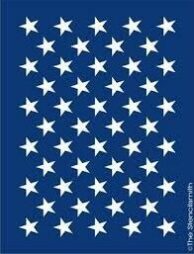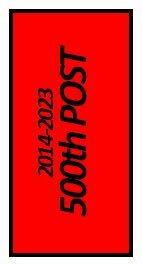The 2024 election will be a chance to see whether the republic we have is–as Ben Franklin wondered–something that we can keep.
This site has invested in the idea that our political disfunction is increasingly fueled by a sizable portion of the public that welcomes the chance to oppose big and sometimes small American Institutions. Opposition is its own reward. In recent years more voters have been interested in challenging the motives of national and sometimes local cornerstone organizations: everything from the FBI and Presidency, all the way down to the local library. As we have seen, the impulse to intervene even extends to local school districts, with some parents seeking to upend professional curriculum planning, library acquisition standards, and even the plays their drama coach is planning to mount. Rhetorically, these frustrated Americans engage in a Rhetoric of No, using some of the same tropes—if not the  script—of sixties radicals on the left who sought to defy official power. (Think of the turmoil of the left unleashed at the 1968 Democratic Convention.)
script—of sixties radicals on the left who sought to defy official power. (Think of the turmoil of the left unleashed at the 1968 Democratic Convention.)
The current urge at the other end of the political spectrum seems to be motivated by a sense of powerlessness, as well as a loss of meaningful connections to local groups or institutions. Social media feed these feelings of isolation without providing functional ways to curb them.
 By now, anyone still grounded in the observable world must understand that Donald Trump was and is an outlier. There can be little question even among most members of his party that he has bent the norms (and, presumably, laws) that usually govern presidential behavior. There are the obvious character issues: cheating others out of payment for their services, sexual predation, playing the victim, lying, and long bouts of narcissist rhetoric. And then there is the stale but vivid verbal abuse of federal and state officials, members of his party, and even his own vice president. Only fascism can use ad hominem attacks on others as a pathway to leadership.
By now, anyone still grounded in the observable world must understand that Donald Trump was and is an outlier. There can be little question even among most members of his party that he has bent the norms (and, presumably, laws) that usually govern presidential behavior. There are the obvious character issues: cheating others out of payment for their services, sexual predation, playing the victim, lying, and long bouts of narcissist rhetoric. And then there is the stale but vivid verbal abuse of federal and state officials, members of his party, and even his own vice president. Only fascism can use ad hominem attacks on others as a pathway to leadership.
The federal and state indictments documenting improper intimidation of election officials are yet to be proven in court, but seem hard to deny. As most know, he is on tape asking Georgia officials to “find” more votes that would allow him to reverse his loss. And he has shamelessly accused election officials in his own party of improperly adding or withholding votes. We now know that–against the odds–the election process in 2020 was generally well run. It makes the blanket accusation that the current indictments are “witch hunts” seem increasingly hallow.
The wildcard here is the boomerang effect: the catch-all idea that persuasion theorists reserve to describe individuals who grow more antagonistic in the face of evidence that should convince them. It happens more than we might think. We can ask people to accept a clear truth. But we can’t make them accept it. Perhaps people do not want to appear to change while under the thumb of another’s compelling case.
This counterintuitive effect seems to be happening with each new indictment of the President. The maelstrom of this news asks supporters to simply affirm deeply held views.
But. . .
Persuasion is typically an incremental process. Most of us need time to change our attitudes. In the meantime, there may be a fair amount of cognitive dissonance attached to the act of continuing to support a flawed idea or candidate. In time, that dissonance may be relieved with attitude realignments that can be face-saving.
The coming election will be a test of whether the nation can collectively handle what the indictments of Trump administration imply. Americans still live in very different rhetorical realities. But can that diversity occur while we acknowledge what is true and known about this whole sordid period of our political life? The 2024 election is a chance to see whether the republic we have is–and Ben Franklin noted–something that we can keep.
![]()


